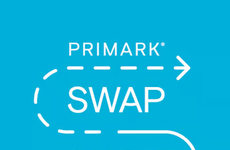
The Time/Bank Pop-Up Shop Trades Minutes Instead of Money
Meghan Young — July 22, 2011 — Lifestyle
We all know that physical money would be worthless if we ceased to put any meaning into it, yet things like useful products and labor have always been worth something, that is why the Time/Bank pop-up shop is so culturally crucial. It forces us to reconsider what is really important in this life. People often get sidetrack by the ritual of making and spending money, but what if we just focused on the work and results that really matter?
The Time/Bank pop-up shop could be seen as utilizing barter economics, however, that is not the case. By trading in time, the Time/Bank pop-up shop does deal in principles of mutualism and the labor theory of value, but only through the concept of time. For example, three hours of carpenter's work would be considered equivalent to 3-12 pounds of corn.
The Time/Bank pop-up shop could be seen as utilizing barter economics, however, that is not the case. By trading in time, the Time/Bank pop-up shop does deal in principles of mutualism and the labor theory of value, but only through the concept of time. For example, three hours of carpenter's work would be considered equivalent to 3-12 pounds of corn.
Trend Themes
1. Time-based Bartering - Opportunity for businesses to explore more bartering opportunities to exchange goods and services for time-based currency
2. Mutualism Economics - Businesses can explore mutualism economics as a way to create value outside traditional monetary systems, and improve individual well-being.
3. Valuing Expertise and Skills - The concept of time-based bartering encourages people to appreciate each other’s skills and expertise, which businesses can use to identify talent and evaluate employees' performance based on their contribution to value creation.
Industry Implications
1. Finance Industry - By trade of time, businesses could explore mutualism-based micro-loans, exchange of goods and services for time-based credits, and open more opportunities for alternative financing.
2. Health and Wellness Industry - Organizations can find new approaches to improve the mental well-being of employees, create a culture of mutualism, and explore the potential of time-based approaches for healthcare services.
3. Art and Creative Industry - Creative organizations can create new collaboration and partnership opportunities with other creators by establishing Time-Based Bartering platforms that allow them to exchange creative skills and services without monetary exchange.
3.4
Score
Popularity
Activity
Freshness























